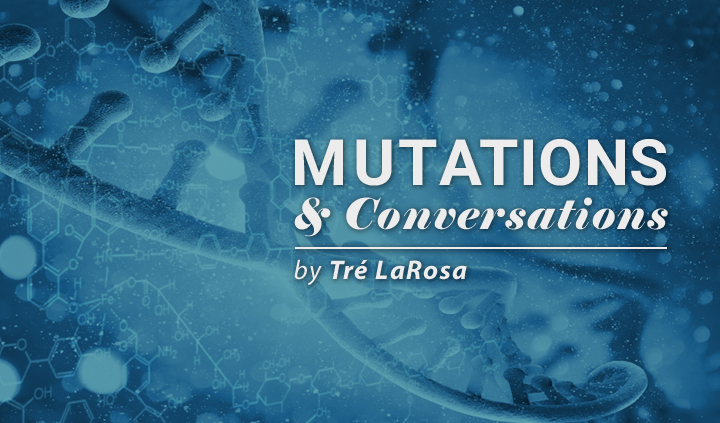How to Overcome the Scourge of Confirmation Bias
Written by |

Have you ever been caught up in a heated discussion with someone who continually refers to stories that confirm their beliefs? Or had a conversation in which it seemed as if the other person had read only the research that confirmed their side and had no reasonable counterarguments to your points? If so, then you’ve experienced the scourge of confirmation bias. But you’re not in the clear (yet) — you’ve probably fallen victim to it, too.
Confirmation bias “occurs from the direct influence of desire on beliefs” and “suggests that we don’t perceive circumstances objectively.” It’s hard to perceive circumstances objectively because we filter our beliefs through our own life lens. In science, we’ll inevitably have beliefs. We study topics by observing them from every angle in a Magellan-esque quest to discover something unseen. The byproduct of our examination is that we develop beliefs informed by research and evidence, both factual and anecdotal. We can also form theories about how things should be, according to our subjective experiences. While our brains are our allies in helping us to establish rules of thumb to better predict future situations, it’s easy to fall prey to those same rules — and this is where confirmation bias flourishes.
Interested in Cystic Fibrosis research? Sign up for our forums and join the conversation!
When we are personally invested in something, it’s natural that we seek out the evidence that confirms it to be true. Think about the wellness industry and supplements. When we are struggling, we want an easy solution. When you find a diet pill that claims it’s “clinically proven to reduce appetite and encourage weight loss,” it’s easy to trust the claim because we want to believe it. In science or our healthcare, confirmation bias can be particularly harmful. When a scientist is determined to reach a breakthrough in proving his hypothesis, that’s when he should be most concerned about his confirmation bias. When a patient wants to believe in the efficacy or lack of effectiveness of a medication, his biases come into play.
It’s not easy to acknowledge or spot our confirmation biases; it requires effort and a desire to overcome them to prevent them from guiding our decision-making. The good news, however, is that even though it isn’t easy, there are ways to work on your confirmation bias. One of the first (and best, in my opinion) strategies is to take a step back and consider the alternatives.
Let’s think about the following example: You’ve been feeling below your “normal” for the last couple of months, and then you enroll in a clinical trial. Within a couple of days of participating in the trial — where you received a placebo or a medication — you seem to have more energy, feel more rested, and your overall health appears to have improved. Are these genuine and measurable benefits from the study’s drug? Or are these apparent improvements caused by the placebo effect and confirmation bias, in which you (subconsciously) want to feel better so you do feel better?
You think, “Hmm, I wasn’t feeling great, then I started that clinical trial, and I’m feeling better, so I received the drug and not a placebo.” Maybe you did, or perhaps you didn’t.
(Columnist’s note: I’m not claiming that people who aren’t feeling well should just “try to feel healthier.” This is merely an examination of how the placebo effect works.)
Consider the alternative: You received a placebo. But perhaps other factors are relevant. Maybe your adherence to your treatments is better or your hydration levels, diet, or sleep quality have improved. Heck, you could have been dealing with excessive stress rather than physical illness. It’s impossible to know — but taking the time to consider the other aspects of our lives is one way to combat our confirmation bias.
Next, research the opposing perspective. We often find that we haven’t reviewed our staunchly held opinions in a long time. New data can emerge or a consensus can shift entirely, so your belief may be based on old, under-researched premises. When you give the other side a fighting chance, you’ll better understand it. You might flip your opinion, or hold onto your belief, but now you have a deeper understanding of the other side.
As people with cystic fibrosis, we have to be careful of our confirmation biases. If we’re not continually updating our beliefs, it can affect our long-term health. Keeping an open mind makes our care easier, makes us better patients, and helps our doctors be better doctors. It improves our lives. What more can we hope for?
Follow along with my other writings on my humbly named site, www.trelarosa.com.
***
Note: Cystic Fibrosis News Today is strictly a news and information website about the disease. It does not provide medical advice, diagnosis, or treatment. This content is not intended to be a substitute for professional medical advice, diagnosis, or treatment. Always seek the advice of your physician or other qualified health provider with any questions you may have regarding a medical condition. Never disregard professional medical advice or delay in seeking it because of something you have read on this website. The opinions expressed in this column are not those of Cystic Fibrosis News Today, or its parent company, Bionews Services, and are intended to spark discussion about issues pertaining to cystic fibrosis.







Leave a comment
Fill in the required fields to post. Your email address will not be published.